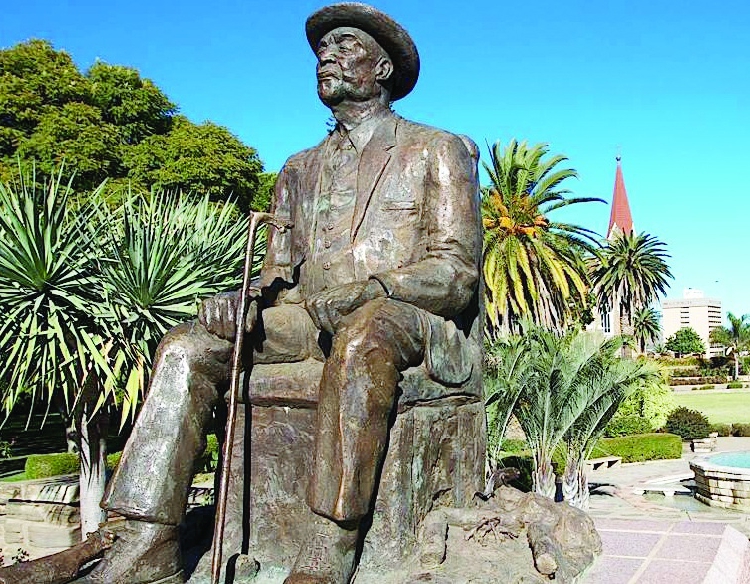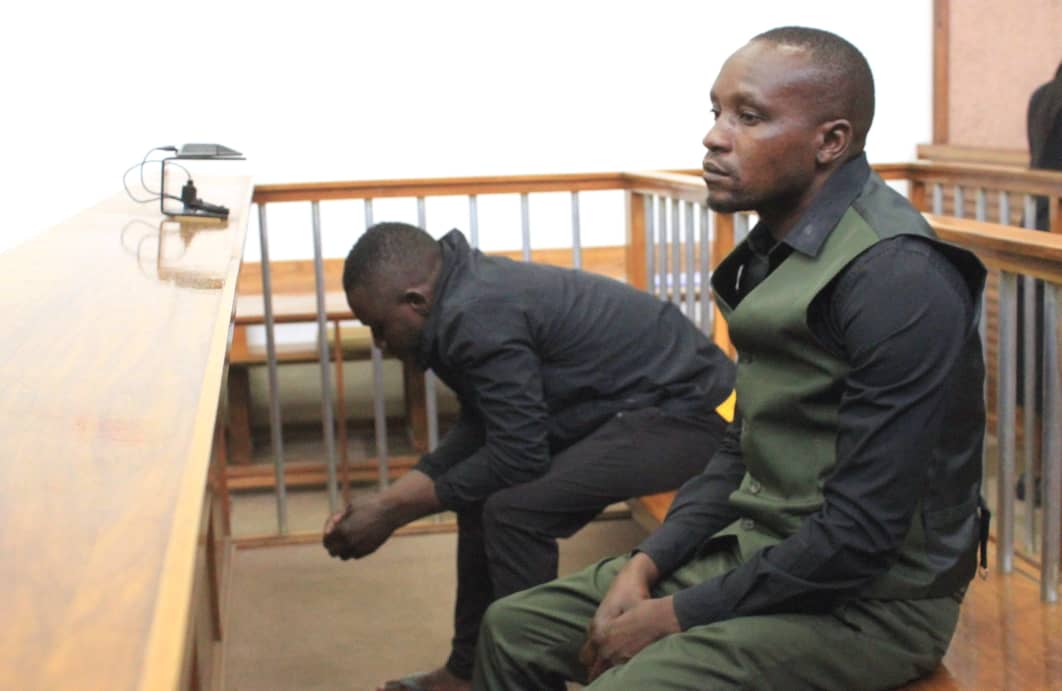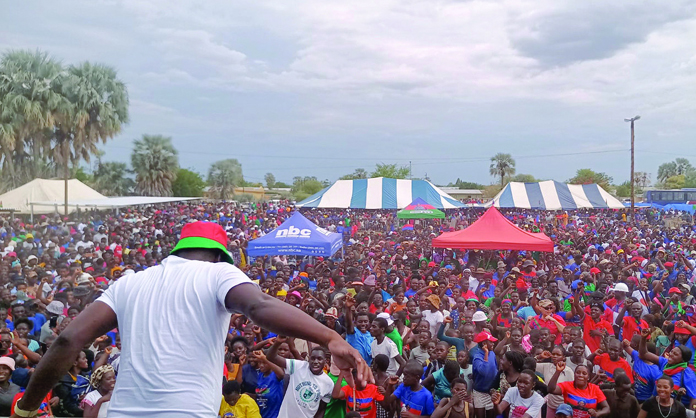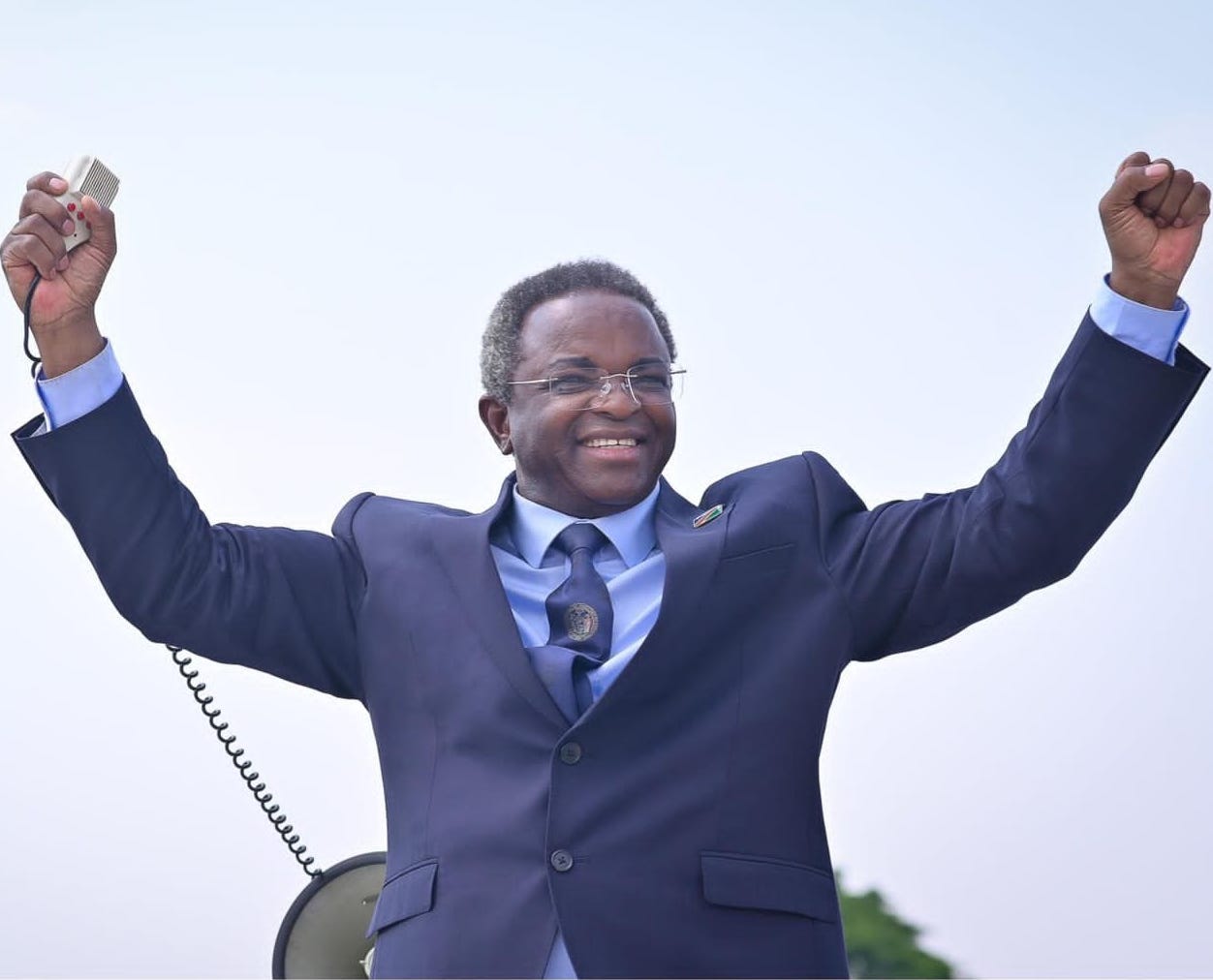On the edge of the shimmering horizon, a thin line of figures slowly comes into focus, inching forward under the midday sun. Walking and limping, the group of shackled men struggle across the parched land, squinting against the dazzling light.
Nature is silent apart from the steady sound of moving feet and clinking chains. Amongst the group, Hosea Kutako winces with every step as he tries to keep pace with his fellow captives. Aged just 34, he had been a leading commander in the German-Ovaherero War of 1904 before he was injured and captured. Now being led by the colonialists, he trekked towards prison at Omaruru.
Escaped, then re-captured, and now released, Kutako stands in front of a cracked chalkboard and gestures to the dozen children seated on the earth in front of him. In this moment he is a teacher at a Rhennish Missionary school.
“Who knows the answer?” he asks, looking around the small faces. Hands are raised, a little voice is heard and the lesson continues.
Children’s laughter is now a distant memory as a flickering lamp lights a long tunnel with figures stumbling back and forth, stooped under heavy loads. Amongst the miners, Kutako finds a free space and sets his light down to rest. Gripping the rough handle of his pick, he swings at the mighty rock face, chipping away a small stone. He swings again, and again, and again. His hands start to bleed.
Decades pass and circumstances change. Besides an open window, Kutako sits upright, glancing every now and then out into the busy street. Aged 50, he feels like a child again, excited and nervous.
Somewhere approaching is Frederik Maherero, the oldest son of exiled Herero chief, Samuel Maherero. Frederik has been appointed by his father to transfer his latent power. It is 1920 and today Hosea Kutako is becoming the new paramount chief of the OvaHerero.
Life continues without pause. Children are born, friends die and vows are made. Kutako sits at a small cramped desk piled with documents, his eyes are heavy and his face is marked by the weight of time. He is 75.
Above the stacks of paper, he holds a thin pen in his worn hand. Besides him sits his friend, Reverend Michael Scott. In a few years the reverend will be blacklisted by South Africa. But at this moment they are relaxed as they move papers back and forth, drafting Namibia’s first petition for independence. The petition is sent to the United Nations on 26 August 1946.
Seasons come and go and ambitious youths who understand their nation’s pain slowly become adults. In the heart of Windhoek, a tall young man with glasses and a broad smile walks quickly to greet the stooped Kuatko. He moves slowly with a wooden stick. The year is 1950 and Sam Nujoma is meeting the chief for the first time. Nujoma is just 21. People are hoping the meeting will change the future of their communities and possibly the country.
A decade passes and political change continues to brew, just below boiling point. Now Nujoma has a beard, he nods his head respectfully looking down into the tired face of Kutako. Leaning heavily on his stick, he gives the young man advice and offers his blessing. It is 1960 and Nujoma is leaving for New York to petition the UN. Kutako warns him he should be prepared to stay away for a long time. This is the last time they see each other.
Time continues ticking, but still the ageing man refuses to lie down. SWAPO is formed and Kutako approves. Soon after he and other leaders launch the National Unity Democratic Organisation (NUDO). Like SWAPO they oppose South African apartheid policy, but they want a federal type of government based on the old tribal regions. Kutako is 94 when the party is launched.
Droughts, floods and famine slip by and reluctantly Kutako takes his final steps. He dies on 18 July 1970. His last will is to be buried alongside Jonker Afrikaner, an old tribal enemy.
Born at Okahurimehi in 1870, Kutako lived through the most devastating period of Namibia’s history. Aged just 14 when the nation was colonised, he fought the first oppressors as he entered manhood, watching their power wane and crumble at the end of WWI.
But as one evil was replaced by another and apartheid sunk its teeth into the broken nation, he continued to fight. The father of modern Namibian nationalism, he championed for freedom to the end.
Only 20 years after he passed, independence was granted and his young companion, Sam Nujoma, became our president. At his inauguration in 2002 he offered praise to his late mentor:
“Chief Hosea Komombumbi Kutako participated in the anti-colonial wars of 1904 as one of the leading commanders. He also played a historic and significant role in petitioning the United Nations Organisation demanding the placement of the then South West Africa under the United Nations trusteeship system. In this way, he played a major role in Namibia’s struggle for freedom and independence. To his revolutionary spirit and his visionary memory we humbly offer our honour and respect.”
Stay informed with The Namibian – your source for credible journalism. Get in-depth reporting and opinions for
only N$85 a month. Invest in journalism, invest in democracy –
Subscribe Now!






